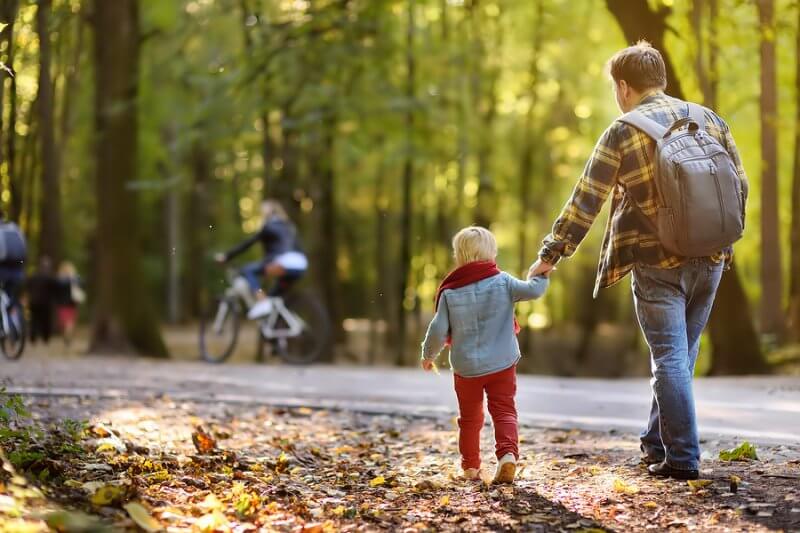
Developing Leisure Activities for Autistic Individuals
Leisure activities are an important part of life for everyone. Engaging in activities that are fun, enjoyable and interesting increases a person’s well-being, happiness and satisfaction in life. Leisure activities can be done alone or in a group, at home or out in the community. We learn activities by watching others, taking lessons, joining clubs, reading instructions, or simply by trying.
For people on the autism spectrum, developing leisure interests and skills can be more challenging because skills are often not learned through informal observation of others or through imitation. Their interests are developed in their own way. How to use materials may not be understood and the materials may primarily used for their sensory qualities. Skills learned through one activity may not be generalized to another.
Why is developing leisure skills important?
Challenging behaviors are often reduced when a person engages in personally satisfying leisure activities. The ability to entertain oneself can reduce stress for the individual both at home and in the community.
There are also social benefits too. Leisure skills and interests can connect individuals who share the same passion. An activity brings a group of people together who share an interest and like to talk about it. My son, Marc, loves drumming so he regularly attends drum circles. He connects with others who enjoy drumming and they all play music together.
Exposure to a wide variety of activities and experiences broadens interests. Interests will also change over time so it’s important to keep expanding experiences for growth and development.
Qualities That Make Leisure Materials and Activities More Successful
While everyone has personal preferences, the following specific qualities can make activities more meaningful and successful.
Understandable
Understanding an activity, the purpose of materials and what to do with them can sometimes be difficult. Some ideas to make things more understandable are:
1. Clear, static rules
2. Well defined beginning and end
3. Predictable or repetitive quality
4. Clear visual representation of what to do
5. Minimal verbal instruction
6. Structured activities
Reactive
Reactive materials provide reinforcement through sensory feedback. This means when you do an action, something happens and it looks different. Examples are lights, sounds, movement and tactile sensation. Electronic and computer games provide this kind of feedback, although it can be a struggle to limit time on tech devices. Music can add interest as well.
Comfortable
Qualities that can increase comfort level are:
1. Challenging without being over-stimulating
2. Suitable for the person’s ability level
3. Limited demands for complex social interaction
4. Opportunity for a sense of control or mastery
Active
Young children need activities that use gross motor skills such as climbing, running and jumping. Rhythmic activities are also good choices such as swinging or swimming.
No matter what age an individual is, they need physical activity which helps reduce stress, build muscle, and increase flexibility and balance. Regular exercise can also contribute to a better night’s sleep.
Visual-Spatial
Repetitive manipulation of objects, putting things in order, or fitting objects into spaces can be very motivating. There are lots of toys and games that provide these qualities such as puzzles.
How Can We Find Out What A Person Likes to Do?
In the book, Developing Leisure Time Skills for Persons with Autism, the authors recommend creating a Leisure Lifestyle Profile. The profile information is gathered through a parent/caregiver interview, an interview with the individual, direct observation assessment, followed by an assessment of the leisure and sensory preferences of the individual.
It’s also important to assess what family and friends like to do as they often provide the expanded opportunities for activities. In our family, my son Marc loves audio tours so we visit historical sites and museums that provide audio guides. Marc will spend hours looking at paintings if he can press a button and listen to the stories about them. He does not have the same level of interest without the audio guide.
Some families like sports, concerts, nature walks, cooking, travelling, historical sites, gyms – the list is endless. By doing activities that the family likes to do, there will be more opportunities for the person with ASD for practice, engagement, and skill building.
Expanding Interests
I’ve written on this topic before and it’s an important one. As a person ages and matures, their interests will change. Boredom can become a problem over time. A person can also get “stuck” in an activity and way of doing things.
Greater independence is achieved through being able to do activities across a variety of environments. My daughter Julia loves cooking, particularly baking. She has an at-home baking program and also attends a cooking class once a week. Our next goal is to get her volunteering at an organization that makes meals for mothers in need. This will give Julia’s cooking a broader, community based purpose and connect her to new people. She also volunteers once a week at a Farmer’s Market to get exposure to raw ingredients and homemade products.
Leisure activities connect us to our family and community. They develop skills, increase independence, and reduce stress. Greater life satisfaction fosters happiness and well-being, and when a person is happy they are generally more flexible and adaptable – both important life skills.
References
Developing Leisure Time Skills for Persons with Autism
Further Reading
Come and Play: Sensory-Integration Strategies for Children with Play Challenges
Getting into the Game:Sports Programs for Kids with Autism
Steps to Independence – Teaching Everyday Skills to Children with Special Needs
Editorial Policy: Autism Awareness Centre believes that education is the key to success in assisting individuals who have autism and related disorders. Autism Awareness Centre’s mission is to ensure our extensive autism resource selection features the newest titles available in North America. Note that the information contained on this web site should not be used as a substitute for medical care and advice.
